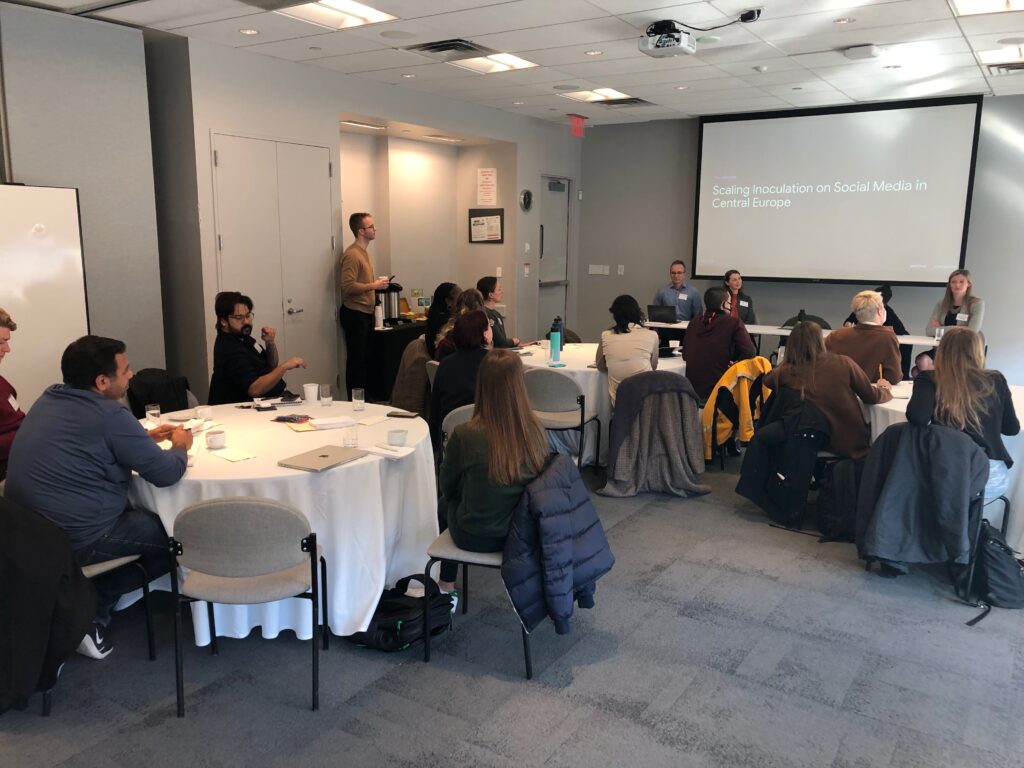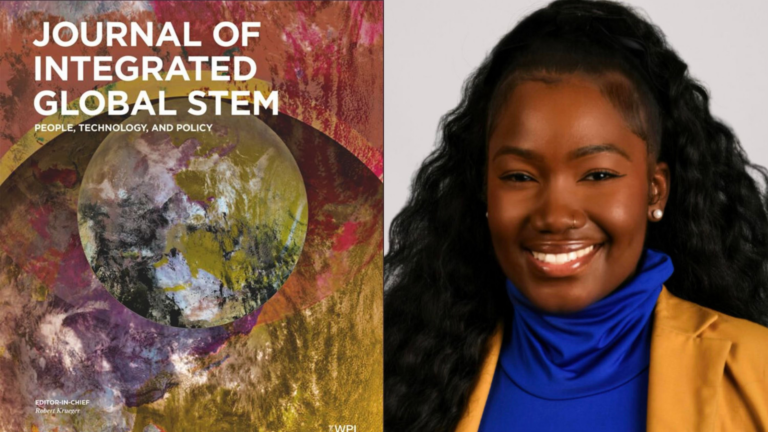Our second cohort of Siegel Research Fellows completed their fellowship year this summer and now join our growing alumni network. The work of this interdisciplinary cohort of researchers and academics was particularly consequential in the midst of a public reckoning with the implications of generative AI on every facet of society. These fellows helped make sense of complex topics ranging from the efficacy of algorithmic audits, to the implications of mis- and disinformation (particularly in the Global South), to mitigating online harm through policy change.
We were able to host our first in-person convening in New York City thanks in large part to our co-hosts at NYU’s Center for Social Media and Politics (CSMaP). Fellows heard from experts working at the intersection of research and policymaking, shared ideas on their current projects, visited Cornell Tech’s campus on Roosevelt Island, and enjoyed a happy hour gathering hosted by Data & Society.

Highlights from the 2022-2023 Fellowship Cohort
Below are a few examples from the past year that exemplify the ways in which the cohort helped advance the objectives outlined in Siegel’s research strategy, which is built around knowledge creation, supporting and contributing to networks, and presenting novel insights:
Research:
- Ruth Appel et al., Partisan conflict over content moderation is more than disagreement about facts (soon to be published in Science Advances)
- Ranjit Singh et al., Parables of AI In/From the Majority World: An Anthology
- Ranjit Singh et al., Taking Algorithms to Courts: A Relational Approach to Algorithmic Accountability
- Ranjit Singh, The curious case of tweeting an Aadhaar number: trust/mistrust in security practices of public data infrastructures
- Eleanor Tursman, Emerging Tech Primers
- Jakob Mökander et al., Auditing large language models: a three-layered approach
- J. Nathan Matias, Human and algorithms work together – so study them together
- Kathryn Zickuhr, Automated and algorithmic management is already here, invisibly shaping job quality for U.S. workers
- Nanditha Narayanamoorthy, Digital Resistance to Asian-American Hate during COVID-19: Study of Photography and Art on Instagram
Awards
- Ranjit Singh, named in “The AI 100 2023: The top people in artificial intelligence”, Business Insider
- J. Nathan Matias, winner of Mozilla’s Rise25: “25 visionaries reshaping our digital future”
Events
- Nanditha Narayanamoorthy, Digital Cultures & Governance: Perspectives from the Global South at the Center for Information, Technology, and Public Life at UNC, February 10, 2023
- Sophie Kelmenson, A Cycle of Inclusive Innovation: How Technology Adoption in Manufacturing Benefits Workers and Businesses Alike hosted by the Urban Manufacturing Alliance, June 8, 2023
Seminars
- Lindsay Sanneman, “The State of Industrial Robotics: Emerging Technologies, Challenges, and Key Research Directions”
- Brandi Geurkink, “Crowdsourced Algorithmic Audits”
- Laetitia Avia, “Code of Conduct Against Online Harm”
- Sophie Kelmenson, “Psychic Income and Care Work in Sustainable Agriculture”
In Their Own Words
The Siegel Research Fellows Program’s objective is twofold: to connect researchers across traditional disciplines to derive insights about how technology is impacting society, and to help participating fellows advance their personal research pursuits. Additionally, the program ensures that fellows have the time and resources to nurture their ideas and research projects, with input and guidance from their fellow cohort members. We’re pleased to share a few reflections from the most recent cohort of Siegel Research Fellows as they look back on their year:
Ranjit Singh, of the AI on the Ground Initiative at Data & Society, shared his experience of the ongoing research seminars:
“It was wonderful to hear the different research projects that the fellows were working on and being in conversation with them.”
Eleanor Tursman, of Aspen Digital shared:
“I enjoyed learning about everyone’s work and presenting my own work. I wouldn’t have been exposed to many of the research topics folks presented on, so I feel like I have a better grasp of the academic end of the tech policy ecosystem. Presenting my own work to others is a good forcing function for getting the work into shape.”
Nanditha Narayanamoorthy, of the Center for Information, Technology, and Public Life at the University of North Carolina, reflected:
“The seminars were a great way to learn about what the other fellows are reading and writing. For my own presentation, I had great feedback that was helpful in refining my piece for publication.”
The Year Ahead
For the 2023-2024 fellowship year, we’re expanding the fellowship program across a range of different criteria. Last year, we worked closely with 11 academic centers, policy think tanks, and independent research organizations across the country to select and host our fellows. This year, we’re increasing the diversity of the fellowship program by including a creative research fellowship and adding a fellow hosted by a HBCU. We look forward to sharing more about our incoming cohort soon!





